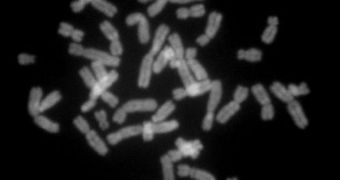Working in a line of research that is among the most commendable of all, researchers Elizabeth Blackburn, Carol Greider and Jack Szostak, from the United States, managed to further humankind's knowledge of aging, cancer and stem cells. In their studies of the human chromosomes, the vessels that carry our genetic information, they were able to determine how the organism protected them from intruders and damage. For this achievement, they are awarded the 2009 Nobel Prize for Medicine.
There are 23 chromosome pairs, totaling 46 chromosomes. The three researchers were able to determine that the most important structures in the formations were the telomeres, found at the end of each chromosome. An equally important role is played by the enzyme that forms them, known as the telomerase. The three researchers were able to resolve a long-standing conundrum in basic science, namely how telomeres worked, and what telomerase did to support them.
Usually, when a cell is about to divide, the DNA material contained within the chromosome needs to divide as well. But an anomaly exists, in that the very end of the chromosome is not copied in the new cell. The mystery deepens even more. If the end of a chromosome was bypassed at each division, then the cells would rapidly age and die. Conversely, if the chromosome was passed on exactly the same, the cell would become immortal – and this is precisely what happens when cancer appears. The team was able to determine the exact role telomeres played in this process.
University of California in San Francisco (UCSF) Professor Elizabeth Blackburn, and Jack Szostak, of the Harvard Medical School, found a unique DNA sequence. Located in the telomeres, it plays an essential role in preventing chromosome deterioration, they report. Joined by then-graduate student Carol Greider, the experts set on a research path that revealed in the end the existence of a hypothesized enzyme that allowed DNA polymerase to copy the entire chromosome, without missing the very last bit. They named the enzyme telomerase.
Eradicating the enzyme is currently touted as one of the main ways of combating cancer today, and the team's work has influenced many other researchers in carrying out similar investigations. A number of the researchers is already in clinical trials, which means that we may see end-results on the market within only a couple of years, the BBC News reports.

 14 DAY TRIAL //
14 DAY TRIAL //